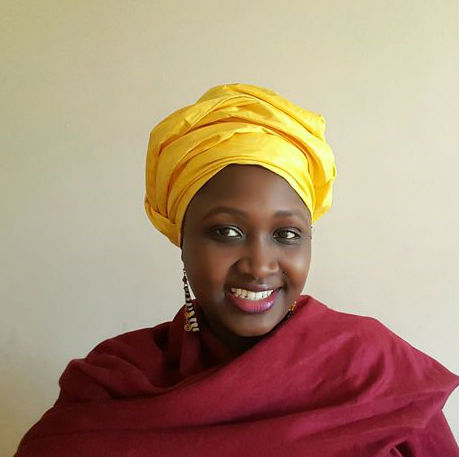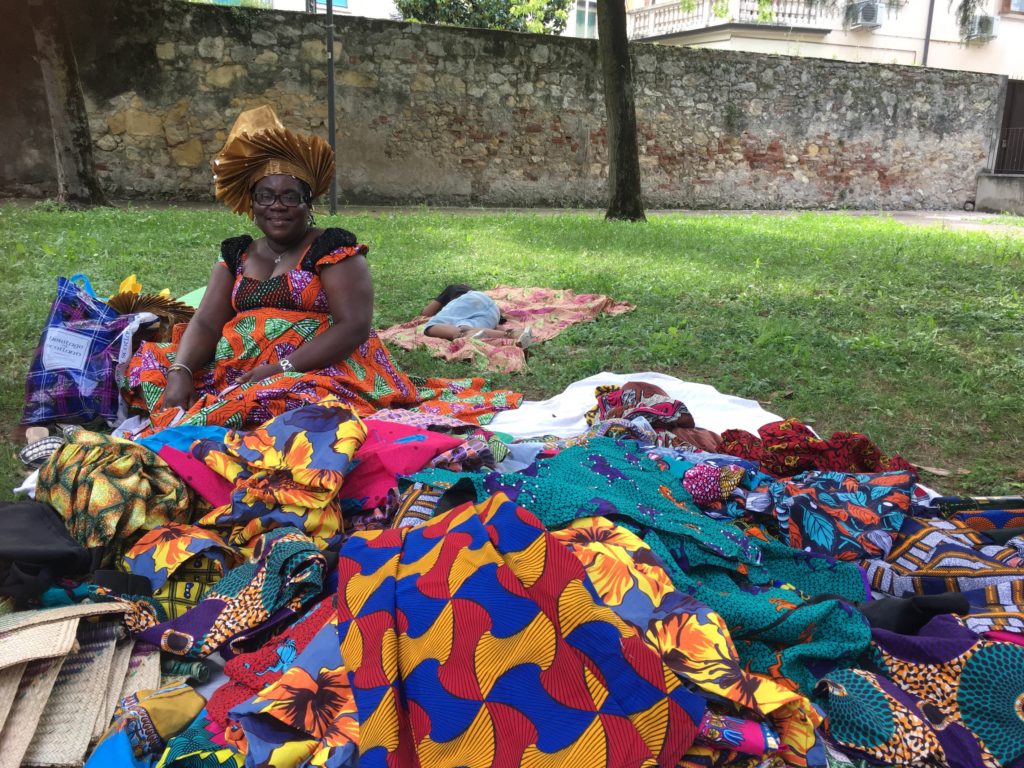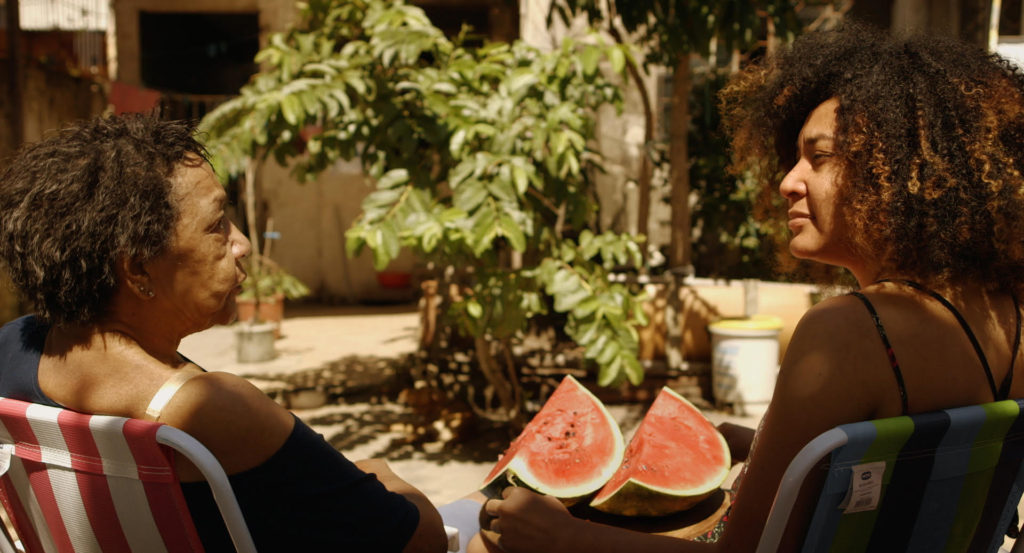As South Asian Heritage Month comes to an end, Ana Tagliati delves into the impactful contributions of the Pakistani community to Scotland’s cultural landscape, with a spotlight on the unique experiences of Pakistani women as they forge new lives in a distant land.
✍🏾 Ana Tagliati 📷 Vitaliy Lyubezhanin on Unsplash
Scotland, known as a friendly country, has attracted many immigrants over the years. It has become a ‘home away from home’ for many communities from across the globe. With its primarily white demographic, the country has become a welcoming haven for individuals from diverse national and ethnic backgrounds, including Pakistanis.
Located in Southeast Asia, Pakistan is a multiethnic and multicultural society known for its deep religious Islamic roots. With a rich tapestry of many ethnic communities, Pakistanis consider family the core of social life, which leads to this group coming together when living in a different country.
According to the Scottish Public Health Observatory, the Pakistani community totalises 1.3% of Scotland’s population, with the biggest concentration in Glasgow, nearly doubling its inhabitants in the last two decades, with 50,000 Pakistanis among a total of 5.5 million population in the country.
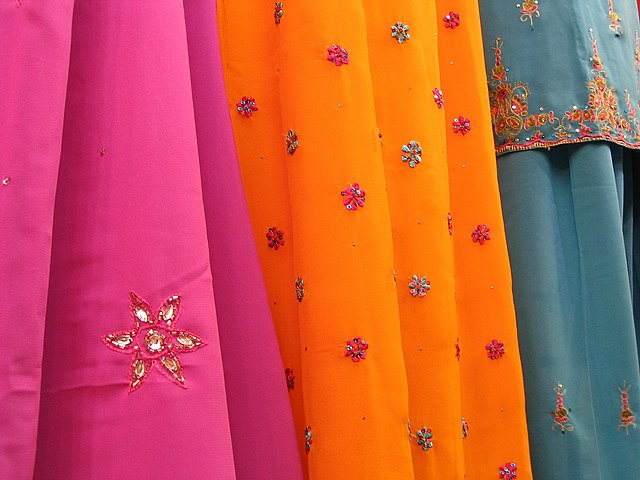
Despite growing a community in another country, cultural differences demand adaptation, especially for women. Many immigrated to Scotland for their families, and these women needed to adjust their needs and customs in a new environment, although not without the help of their compatriots.
Rabia Noor Khan moved to Scotland eight years ago for her husband’s job. Arriving in the country pregnant with her first child, she realised right away that it was not going to be easy to adapt and that she needed to lean on the Pakistani community living there.
“First of all, you face the language barrier, and the Scottish accent is very difficult to understand. We are afraid that we’ll speak and people won’t understand us. So it’s easy to communicate with our community.
When you go to the shops and see the way people dress, that they speak Urdu, from their faces, you can guess that they come from Pakistan, and that makes communication easier,” she said.
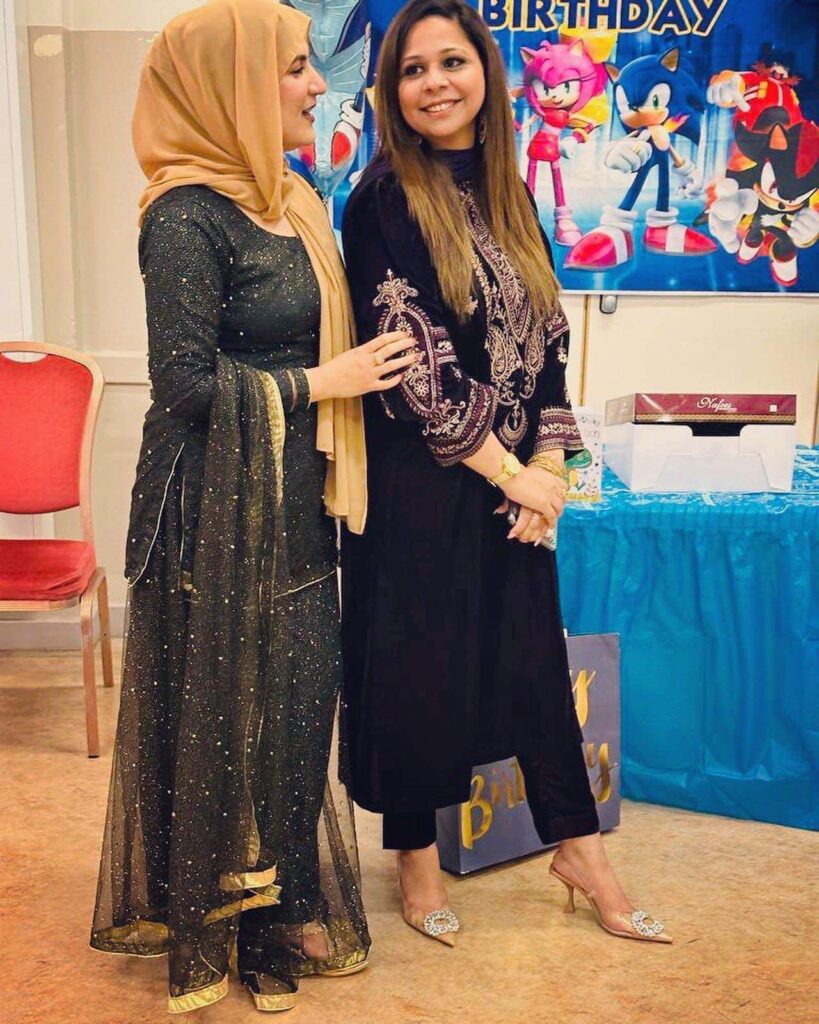
Rabia’s connection with the Pakistani women also made her adaptation to Scotland easier.
“You can feel very lonely and depressed being so far from our families. So these things make us have a deeper connection to other women.
We go to each other’s houses, meet up, get close to each other and they become your closest friends, confidants and sometimes even closer than your own family,” she added with a comforting smile on her face.
Rabia further said that life became easier for her in many ways. “I see that here, our husbands are busy working from morning until night, so these connections and friendships make your life easier.
Your kids connect, you arrange a picnic and shopping, and when you need to, you drop your kids at someone’s place, or they pick them up from school,” Rabia said over a video call.
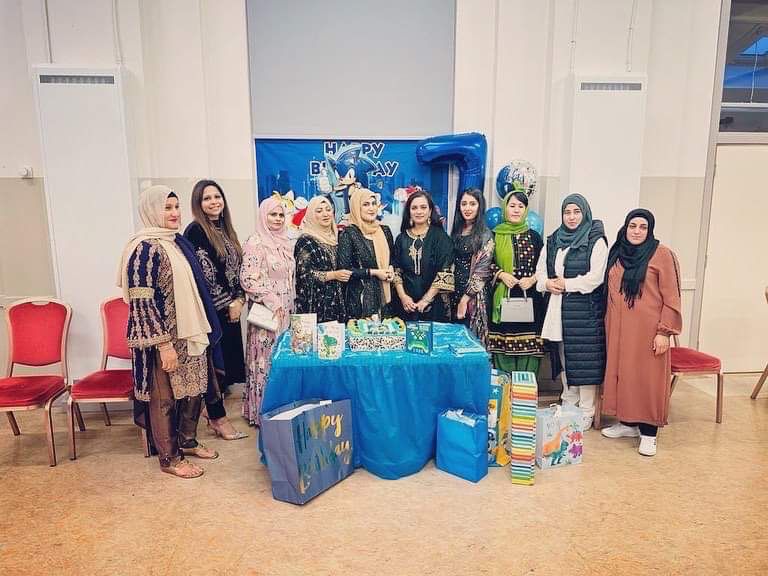
Since coming to Scotland and away from her family, Rabia has had the help of Pakistani women in many situations, showing that her friends are her family away from home.
“When I had a baby, my friends cooked for me and sent the food to the hospital. They are like family,” she said warmly.
Although Rabia’s children were born in Scotland, she ensures that they grow up with Pakistani roots and are connected to their community through religion and culture. She takes her children to the mosque, where they read their Holy book and celebrate their festivals, such as Eid-ul-Adha and Eid-ul-Fitar, which are big parts of Pakistani culture. The two festivals, for example, which focus on prayer, the community, family, and sharing, allow everyone to come together as one, helping the community make the space more homely.
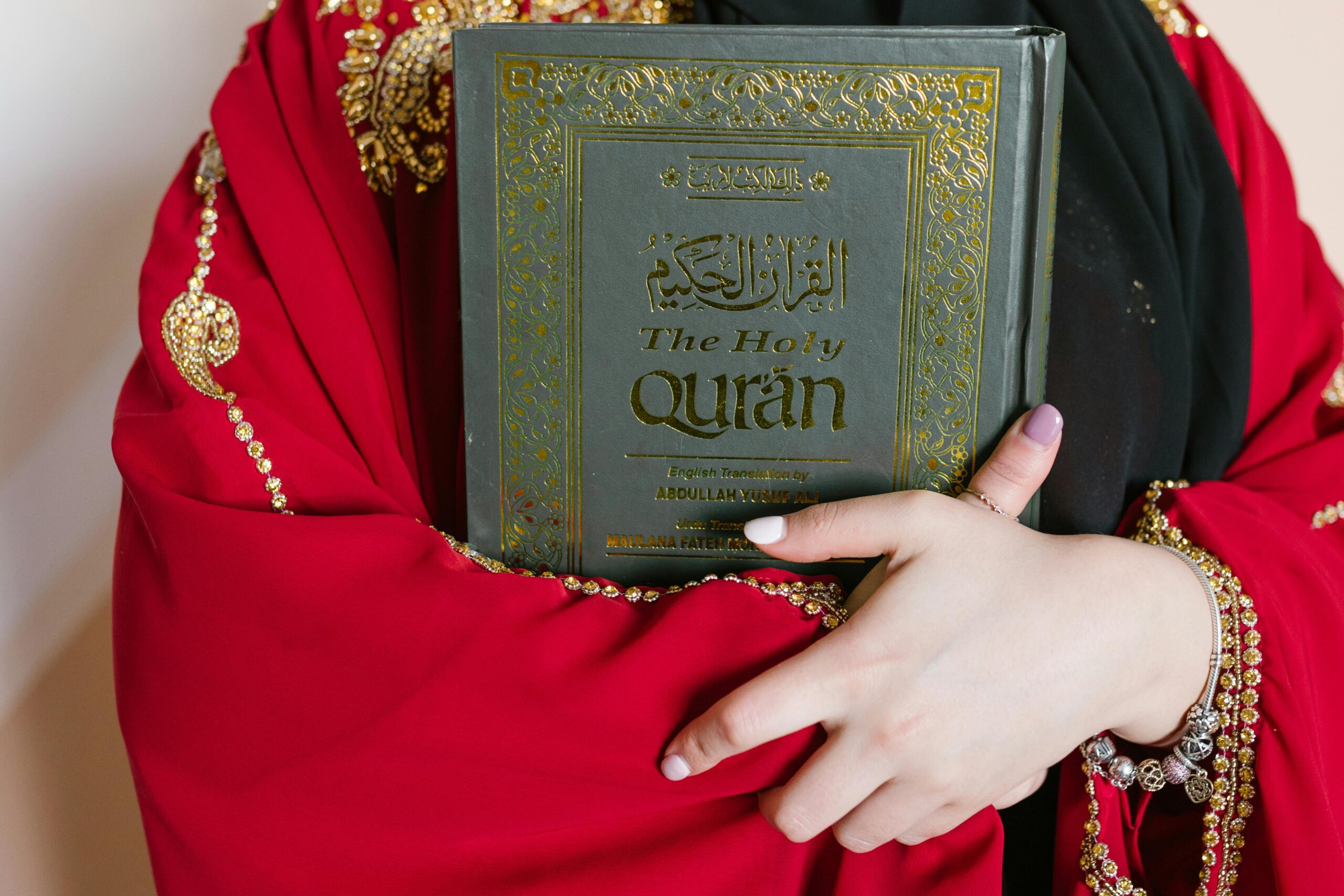
“We want our kids to be in touch with their culture and values, and we want to transfer all of this to them. Our kids are fond of them, “ she said.
Aiming to keep the community together, the Pakistani diaspora in Scotland also extended their ways of communication with the creation of the radio station Awaz FM.
Founded nearly 30 years ago, Awaz FM aims to give a voice to the BME (Black and Minority Ethnic) communities, focusing on the Pakistani community. Ambreen Shoaib, Presenter of ‘Drivetime’ on Awaz FM, said, “The founders saw that these communities were not well represented in mainstream media, so they started Awaz FM to share their stories, culture, and important issues.”
With many Pakistani women as presenters, Awaz FM aspires to inform the women in the community, delivering news, health tips, educational programs, and discussions on social issues, integrating this group through information and events around Scotland and the community.
About having Pakistani women as presenters, the radio station said, “Having Pakistani women as presenters is very important because they serve as role models and share experiences that resonate with other Pakistani women. They understand the cultural nuances and language, making it easier to connect with the audience and the audience to relate to them.

Featuring women as presenters empowers them and challenges traditional gender roles, promoting gender equality. “We celebrate International Women’s Day and other Awareness Days that may be relevant in highlighting the important role of women in our community,” they said.
One of the Presenters, Sadia Ahmed, who moved to Scotland 31 years ago, talked about her work in Awaz FM supporting the Pakistani community.
“There was a new opening for me; I became a presenter and started interacting more with Asian women and those from the BME communities,” she said.
Speaking about the radio station, Ahmed said that at Awaz, funds are raised from different charities to help women from these communities with any difficulties they may face.
“I’ve had the opportunity to learn more from the people who came from Pakistan, the difficulties they have, such as the language barrier and how we can help them, signpost them to the right places in Scotland so they can have their health taken care of, their housing and things like that,” she added.
She also applies the same values to her family life at home, encouraging the preservation of her Pakistani roots.
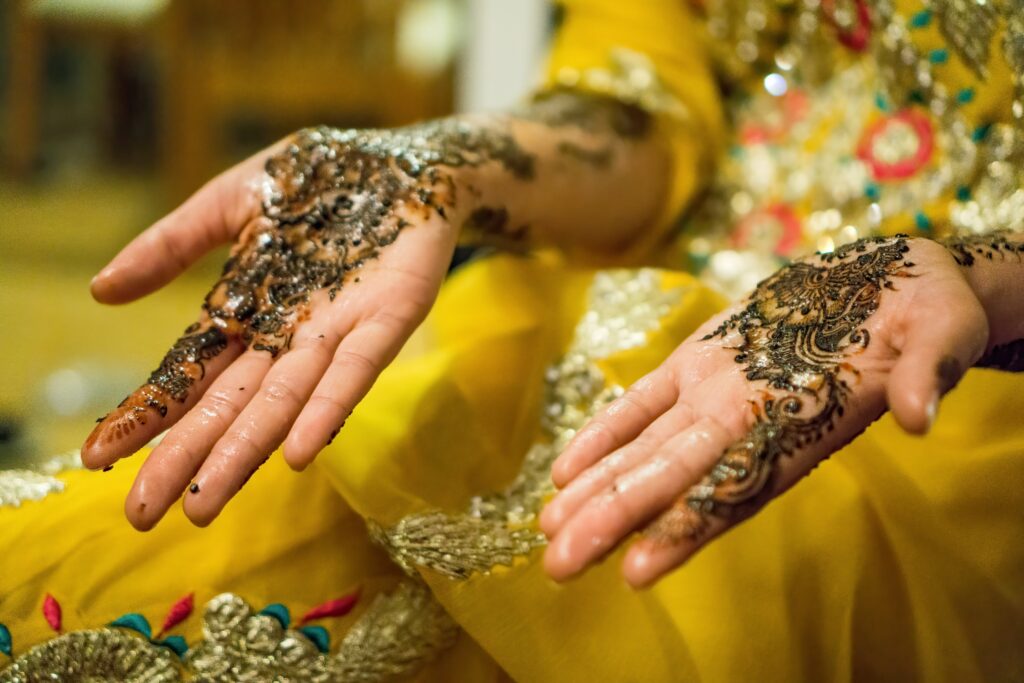
“I taught Urdu to my kids and used to speak it around the house all the time. I told them they could speak English outside the house, but at home, it was Urdu, so they could learn and communicate with their grandparents, who are a big support to them.
I make sure my daughters wear proper clothes in the house. They can wear jeans, but always with kurta (a loose collarless shirt or tunic worn in many regions of South Asia) in a way they always feel comfortable in the clothing. I don’t impose, I just tell them about Pakistani culture like how cotton is soothing to the skin,” she explained.
She said she teaches them all these things with love and care so they can understand it easily. “I make sure that the Scottish culture integrates with them so they can understand the importance of Pakistani culture as well as the Scottish culture,” she said.
Overall, it is safe to say that the Pakistani diaspora has integrated well into the Scottish community and culture. When talking about living in the country, Rabia summed up what attracts the community to Scotland.
“I have a good environment, with healthy food and life. I am financially strong, have a good household and a happy family. My kids are happy, and their education is good, which wouldn’t be possible living in my home country,” she noted.
Speaking about whether they had difficulties interacting with the community, Rabia said, “The Scots are very warm, welcoming, always smiling, helpful, and generous. They never doubt you if you wear a hijab or go to the mosque; they never judge. In Scotland, I feel secure,” she added.
Ana Dutra Tagliati is a former lawyer turned journalist with a Master’s Degree from Edinburgh Napier University. She hosts and produces her weekly podcast, ‘The Brazilian Point of View’, and loves reading and writing in her spare time.

